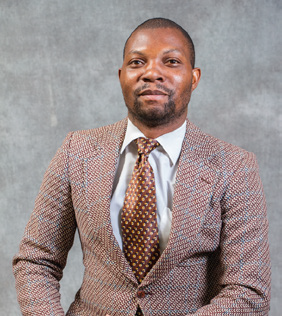The importance of energy in the socio-economic development of the world is an unprecedented reality. As governments across the globe grapple to find solutions to the energy situations in their respective countries a lot of lessons can be drawn from the experiences of Germany. Scaling up and replication of renewable energy by the European industrial giant, has led to many predicting that it will continue to show leadership and excellence in clean energy until another giant rises from the ashes. Currently, Germany uses 46% of renewable energy in its energy mix. This has been attained through deliberate investments in renewable energy sources such as solar and wind technologies. Smart Energy International attribute the surge in Germany to be due to reduced usage of coal in their energy mix. In terms of per capita renewables each person can use 1.4 kilowatts (kW), the highest for any country in the world. This is in comparison to the global average of 0.2 KW.
The emergence of renewable energy as a core element of the energy mix shows the enhanced commitment to addressing the impacts of climate change as well as promoting decarbonisation. Both developed and developing countries have a responsibility to scale up clean energy sources as a means of reducing carbon footprint and also creating green jobs.
Zimbabwe has recently launched a National Renewable Energy Policy in the year 2020. The policy is meant to steer advanced implementation of renewable energy in the country. The National Renewable Energy Policy is also anchored on policy incentives and the encouragement of stakeholders such as Independent Power Producers (IPPs) to invest in renewable energy. Implementing the policy can set the country on a trajectory of climate mitigation and energy security. Boosting local economic performance and regional industrial growth, needs harnessing sustainable sources of energy. Close cooperation and bilateral projects with advanced economies is a necessary step to benchmark performance in renewables. Green jobs can be necessitated by a green energy transition as seen by over 360 000 jobs created in Germany’s renewable energy sector. It is very encouraging to note that a green economy can sustain social goals whilst achieving environmental outcomes and targets of the Paris Agreement. North-South cooperation, technical assistance and exchange programmes will be necessary in order to harness the lessons learnt in the path towards a green economy in Germany as a means of developing capacities in other parts of the world. Developing countries such as Zimbabwe can also take a leaf and benchmark strategies, policies and case studies.
Author
-

Tawanda Collins Muzamwese is the Editor in Chief of the Green Business Gazette Magazine. He is is an international consultant in sustainable business development with massive experience in training, consulting and auditing. He has facilitated capacity development in more than 100 enterprises drawn from over 30 countries. He is the founder of the sustainability think-tank called Toxiconsol Consultancy t/a African Sustainability Consultants. He is the Editor in Chief of the Green Business Gazette Magazine. He is a consultant and business coach with over 13 years experience. Tawanda is a Management Systems Consultant working on promoting development and implementation of ISO Standards (ISO 14001:2015, ISO 9001:2015 and ISO 45001:2018) in both developed and developing countries. With his inspirational and pragmatic writing style he has written cutting edge books including: 1) How to grow a Side-hustle into a viable business - Overcome Salary Dependency 2) The Leading Consultant: How become an authority in your professional field 3) Step-by-Step Guide to implementing Safety, Health, Environment and Quality Management Systems 4) Stepping on Higher Perspectives: Greatness Tips Motivational Series 5) Sustainability Guidebook for Boards and CEOs: Leading from the front Tawanda writes about sustainability, motivation, safety, health, environment and quality management. His books are relevant to both developed and developing countries. With practical approaches and case studies, he provides incisive insights into entrepreneurship. His philosophy is based on the premise that every human being has potential to make a significant difference in their lifetime. He writes books on taking personal responsibility for progression in life. He motivates entrepreneurs to implement income generating projects and determine their own financial destiny. He also motivates companies to take up sustainability initiatives. A start-up coach, public speaker, environmentalist, safety, health and quality management expert, Muzamwese bridges the gap between theory and practice through building capacity and sharing practical case studies in his books.
View all posts



